Most people understand that marketing is key in how well sales performs, but the service organization is even more important.
And the problem is that most organizations try to use service as a key component of their competitive strategy yet few actually deliver anything but mediocre service.
Quite frankly, service generally is abysmal despite the rhetoric provided by leadership — it’s a dream in most organizations with no practical way to make it come true.
This situation not only makes the sales job tough, but it can also make it impossible.
If sales is to be successful, it must perform their role within an overall customer service experience that is brilliant, not mediocre. Customers don’t differentiate between sales and service; they look at an organization holistically. And if they find a service environment where they are respected and cared for, they typically will buy — sales doesn’t have to sell.
If service is toxic, on the other hand, they will likely not buy regardless of the selling proposition used and the brilliance of the salesperson.
These mistakes are at the root of the service problem for most organizations. Fix them if sales is to perform at the highest level possible.
1. Putting cost before care
“The only purpose of ‘customer service’… is to change feelings.” — Seth Godin
After the aspiration — “our goal is to deliver service beyond expectations” — fades, reality sets in and the monthly income statement dictates the agenda. What does the business case look like to deliver service goals? What will it cost to delight our customers, and how do we translate this into additional revenue? At the end of the day, a proposal to outsource the service call center to a remote location with lower wages (and questionable English language skills) gets approved — the care factor is ignored.
Don’t talk about service excellence when you’re not prepared to invest to deliver it. You can’t create memorable moments when costs are the primary concern.
2. Treating the frontline as bottom dwellers
Who in the organization delivers the service brand? It sure the hell isn’t the CEO or the Executive Leadership Team. The irony is that the people who own the brand are relegated to the bottom of the chart. These are people who are “only” sales receptionists, service reps, credit reps, and sales assistants. People who perform “junior” roles but who breathe life — or not — into the aspirational goal of superlative customer service.
If organizations want a superb sales function, the people who wear the badge of service every moment of every day must be honored and held in esteem.
3. Focusing on the abuser
Policies and procedures are typically used as mechanisms of control. They control the customer engagement process. They control the criteria for treating customers who have been wronged by the organization.
They are instructed to deal with the person who wants to ”abuse” standard protocol. And sales is called upon to be a “dumb rule” enforcer every day.
The customer who is assumed to be dishonest — “Before I serve you a drink I need your credit card” (because others who came before you took off without paying and I assume you will do the same).
Here’s a novel idea: why not create rules and policies to make it easy for people to do business with you rather than punish them for what a minority number of people in the crowd have been known to do in the past?
4. Not saying “I’m sorry”
“Your most unhappy customers are your greatest source of learning.” – Bill Gates
Mistakes happen because organizations have two resources that go wrong from time to time — people and technology. As it turns out, however, mistakes that are handled the right way actually build stronger customer loyalty than if the OOPS! never happened at all.
A successful service recovery = fix it fast + do the unexpected. To have an amazing service outcome, the mistake must be quickly remedied — after 24 hours you have lost any possibility of building loyalty — AND a surprise element must be added — something the customer doesn’t expect.
And it begins with the apology and sales plays a HUGE role in this. “I’m sorry” — even if you think it’s not your fault — opens the gates for a delightful service finale when things get screwed up. Quote company policy at your peril, because people don’t give a damn about your rules and policies.
5. Getting it right the first time
The essence of service quality teaching is to conform to customer requirements the first time. To avoid mistakes that will require you to redo your work to get it right, thus increasing the costs of supply. Repeat work = higher costs.
So the majority of attention and investment goes into this purpose with little acknowledgment that it MIGHT not get done right the first time. That mistakes might rear their ugly head and present an opportunity to actually come out of it all in a stronger position — read last point again.
Successful organizations plan for screw-ups — how do we intend to deal with situations where we DON’T get it right the first time? Don’t fall into the trap of relying on achieving perfection with every customer engagement. Big mistake; it won’t happen.
6. Meeting expectations
“The key is to set realistic customer expectations, and then not to just meet them, but to exceed them — preferably in unexpected and helpful ways.” — Richard Branson
Doing what the customer expects is merely part of the answer to delivering brilliant service. It’s the basic action that must be taken in order to “play the service game” — you’re in the game if you do it, but you don’t excel at it if that’s all you do.
Standout organizations try to anticipate what could be provided beyond what is expected; they set their sights at delivering more. They look for opportunities to add something extra to the customer engagement process — a bit of fun, some unique advice, a number to call for help if needed — small things that leave a memorable impression.
Stopping at what people expect defines you as a member of the service herd, indistinguishable from everyone else. Big mistake; limiting move.
“If you make customers unhappy in the physical world, they might each tell six friends. If you make customers unhappy on the internet, they can each tell 6,000.” – Jeff Bezos
The cost of a culture that is not obsessed with service in every way is HUGE, and regardless of how well sales is trained in their discipline, their productivity and performance will fall short of expectations.
So if you want a thriving sales organization, make sure it is allowed to do their thing in an environment where customers are cared for and delighted by the entire organization.



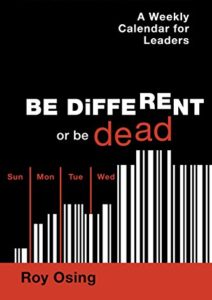

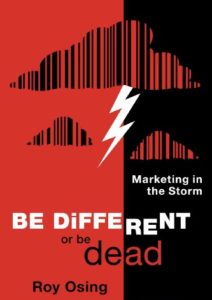
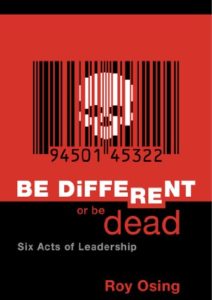
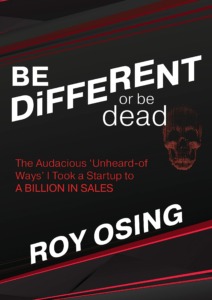
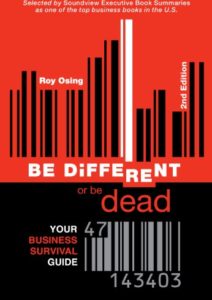
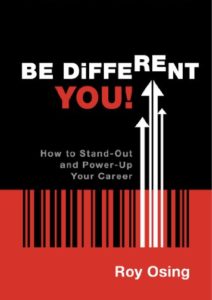










































Comments (1)
Thanks for highlighting this mistake